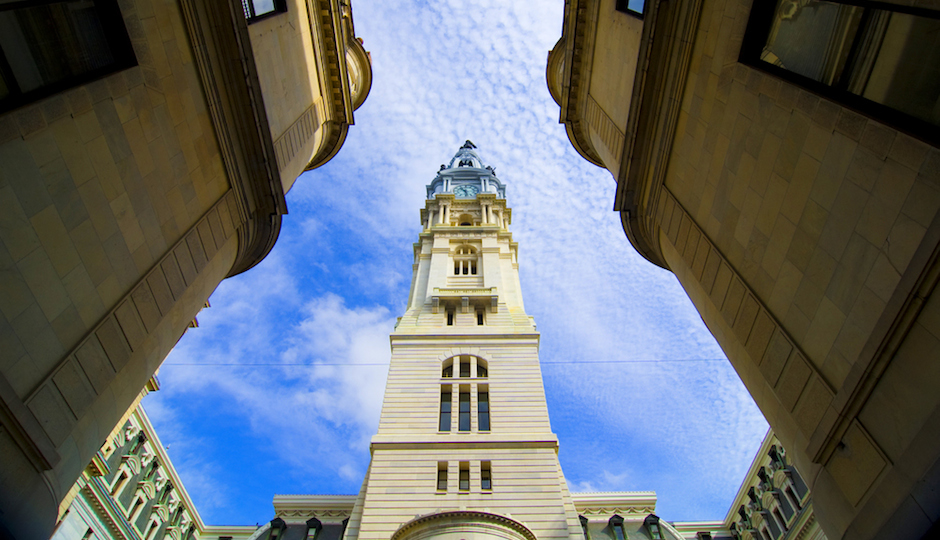School Boards, Elections, and Philadelphia’s Utterly Failed Democracy

Photo | Jeff Fusco
Maybe democracy in Philadelphia isn’t working so well.
That’s not a novel observation, I realize, but it takes on new urgency with the growing campaign to dissolve the School Reform Commission. What would replace it? Maybe a mayoral-appointed panel — not too different from the SRC, but with more local accountability — but maybe, maybe an elected school board.
You know: One accountable directly to the voters and taxpayers of Philadelphia.
Funny thing is, the idea of an elected school board produces a pretty bad reaction from smart and experienced observers of the city’s political scene.
Take WHYY’s Dave Davies, who figures the school board will end up picked by the same ward leaders who end up picking all the other offices in town:
I think having school board elections when there are other very high-profile races on the ballot will only ensure they get little attention, leaving the politicians in control. I’ve been around here a long time and seen it happen, again and again.
Just think of it this way: Do we want to pick school board members the way we always picked Traffic Court judges?
Over at the Inquirer, Phil Goldsmith — the school district’s CEO in 2000 and 2001 — makes his contempt for the idea even plainer:
As for democracy Philadelphia-style, all you have to do is look at the meager turnout for our municipal races to realize that our elections are largely determined not by the “people,” but by a handful of power brokers.
Those who win are those who are supported by the party bosses or special-interest groups, who are able to control the results since few eligible voters come to the polls. If you want to get a glimpse of what the Philadelphia School District as envisioned by Wolf might look like, consider the composition of City Council and row offices like the sheriff or the city commissioners.
Basically, the anti-election crowd’s argument boils down to this: Look at Philadelphia politics! Don’t they suck? Do you really want more of that?
Doesn’t this mean we have a super-serious crisis of governance? If the way we do politics in Philadelphia is so awful that our leaders beg us not to give Philadelphia more politics, shouldn’t we be taking a much closer look at how we do business? Shouldn’t we consider tearing down (metaphorically) City Hall and rebuilding it in a way we actually think will work?
And if we’re not doing those things, why not?
The way we do things now is not the way we’ve always done them: The City Charter is 65 years old this year — an age when creaky humans generally retire. Maybe it’s time to do the same with our overall system of elections and governance. Maybe it’s time to re-arrange the pieces so that our politics gets scrambled a bit, so that the incentives change for elected officials and behind-the-scenes folks alike.
Maybe it’s time to start over.
There is no perfect system of governance. Maybe Philly is governed as well as it possibly could be — this is as close to utopia as it’s possible to get! In which case: Ugh!
But the very reaction to an elected school board — justified by criticisms of the way the city generally runs — suggests otherwise. Maybe democracy in Philadelphia isn’t working so well. What will?
Follow @JoelMMathis on Twitter.


